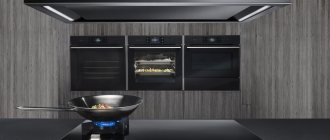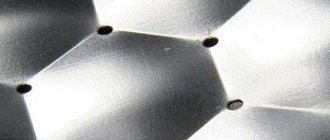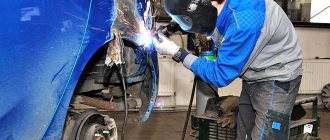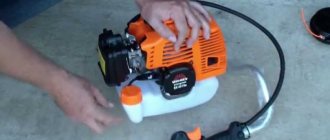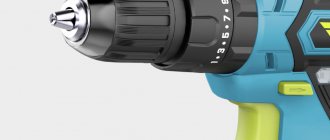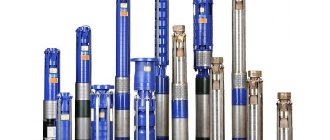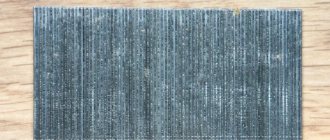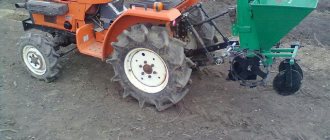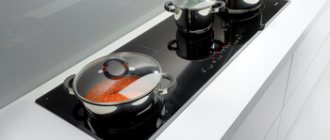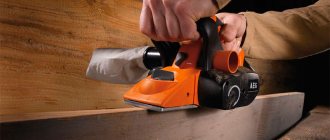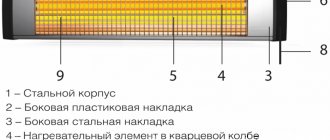The problem of washing dirty laundry is relevant at all times. Is not it? And washing machines now help with this difficult task. Modern housewives prefer automatic devices for washing, the operation of which is carried out with virtually no human intervention.
However, such household appliances place increased demands on installation and operation, since they require a connection to communications. In some cases, the best semi-automatic washing machines can replace it.
In this material we will talk about what semi-automatic washing machines are, and also reveal the secrets of choosing them. In addition, after analyzing reviews, we compiled a rating of the best washing machines, according to users. The article is accompanied by thematic photographs and videos that will make choosing a house help easier.
- Installation and connection nuances
- Model #1: WILLMARK WMS-65P
Types of semi-automatic machines
Unlike automatic washing devices, semi-automatic machines cannot operate without the participation of a person who must pour and drain water and transfer laundry for spinning.
On the one hand, this creates some problems, but on the other, it has certain advantages.
In specialized stores you can find a variety of models of semi-automatic devices that differ in design, size, capacity, and additional functions.
Based on various criteria, we can distinguish a number of varieties of semi-automatic washing machines. Each category has distinctive qualities.
Activator and drum models
Based on the mode of action, there are activator and drum types. In the first case, a special device is installed at the bottom of the container - an activator, with the help of which the laundry is rotated in the internal space of the container.
More than 90% of modern semi-automatic machines fall into this category, which is explained by the high advantages of such equipment.
Due to the compactness of the operating unit, such machines are reduced in size and light in weight. The simple mechanism ensures stable operation and durability.
In activator machines, laundry is washed using a special disk that can rotate in one direction or produce reverse reverse movements.
An important advantage of activator rotation is that it is more gentle on fabric fibers when washing.
Thanks to this, the products wear out less and retain their original appearance longer. This especially applies to reverse models, in which things do not twist together.
The operating mechanism of drum machines is metal drums, similar to those used in slot machines.
This type of washing equipment is less in demand: at a high cost, the devices have larger dimensions and weight, but lower capacity.
One and two bay devices
The simplest modifications of semi-automatic machines have only one compartment for linen. Such devices weigh very little, but they are less functional, since things have to be squeezed out manually.
Cars with two compartments are more convenient . Their design involves two tanks, in one of which the laundry is washed and rinsed, and in the other - spinning.
When transferring products from one compartment to the second, you should try to distribute them evenly in the space of the centrifuge. This allows you to increase the efficiency of the moisture removal process
Principle of operation
Essentially, a semi-automatic washing machine is a large tank with a motor. It is the motor that performs the washing process. To wash dirty laundry, you need to:
- fill the tank with a suitable amount of water, pour detergent into it and add laundry;
- turn on the timer and wait until the appliance washes;
- drain the soapy water, rinse the laundry in a separate container or in the washing machine itself;
- wring out the wash.
In principle, everything is quite simple. But depending on the device you choose, you will have to either heat the water yourself or wait until the built-in heaters start working. The laundry can be spun by the machine itself, or again, everything will have to be done with your own hands. Therefore, before buying a semi-automatic machine, you need to know what they are and what the differences are.
What to look for when purchasing?
When choosing such a device, you should consider a number of important factors:
- efficiency;
- volume and dimensions;
- tank material;
- washing class;
- availability of additional functions;
- permissible load;
- price.
An important criterion for selecting any household appliance is the level of electricity consumption.
The most economical models belong to class A , followed by units of class B and C , the operation of which requires greater electrical current consumption.
Having low weight, semi-automatic machines are easy to transport, thanks to which they can be taken to the country using a personal car or other type of transport
You should also pay attention to the washing class, which is also indicated in Latin letters: A - indicates the highest quality, and G - the worst.
The load on the device depends on the number of people in the family, as well as on the conditions in which it is intended to be used.
If the machine is purchased for occasional washing at the dacha or as a backup option for the home, a small model designed to process 2.5-4 kg of items is sufficient.
If you intend to constantly use the washing machine, it is appropriate to purchase a unit with a large capacity.
Semi-automatic machines are distinguished by their rather modest size and light weight, while single-tank models weigh less than double-tank ones.
If you plan to periodically transport the device, for example, to a country house, first of all you need to consider compact models with a durable body.
The main part of this technique is the tank, for the manufacture of which stainless steel or plastic is used . The first option is distinguished by its reliability and long service life, which affects the increased price of the machine.
Models equipped with polymer tanks are much cheaper, but require careful maintenance and careful handling.
Some modifications of semi-automatic machines are equipped with additional functions, for example, water heating. This option is especially useful if there is no hot water supply.
Although a semi-automatic machine with two compartments is more expensive and weighs more than analogues with one tank, this technique is much more convenient
Machines can also be equipped with filters, have special modes (for delicate fabrics, wool), and oxygen washing. It is necessary to take into account that the presence of additional functions directly affects the cost of the device.
When purchasing, you should use the following algorithm:
- Consider the volume of items you plan to wash in the machine, as well as what features might be useful to you. Based on these criteria, as well as the information provided earlier, select a model.
- When purchasing in a regular store, inspect the unit for external defects, check how tightly the laundry tank closes.
- Also inspect the hose and other items included in the package.
- To check that the machine is working properly, ask the seller to plug it into the network.
It is also advisable to inquire about the terms of the warranty and the availability of service centers.
How to use the washing machine?
There is absolutely nothing complicated in operating such machines, everything is extremely simple. To wash clothes, you need:
- Sort the laundry into several groups - white, colored, cotton, wool, etc.
- Pour as much hot water into the machine as is required to completely fill the container, including the laundry.
- We add the recommended weight of laundry and the required amount of powder, based on the degree of soiling of the clothes.
- We turn on the main washing cycle by setting the time on the timer.
- As soon as the machine finishes washing, we send the laundry to rinse (in a basin, in a bath with clean water).
- If there is one tank, first all the laundry is rinsed and then spun in a centrifuge.
- At the end of the spin cycle, the laundry should be hung out to dry.
- The washing process ends by disconnecting the unit from the power supply. Afterwards, you need to drain the water from the washing machine, rinse the tanks and wipe them dry.
Top 10 best semi-automatic models
Cars of this type are produced by both Russian and foreign brands. The latter usually have more functionality, but also cost much more. Here is a rating of semi-automatic machines based on user reviews .
Model #1: WILLMARK WMS-65P
An advanced version of a semi-automatic top-loading washing machine. The model differs from most units of this type in its build quality and convenient control circuit.
The tank of the WILLMARK WMS-65P machine, which allows loading up to 6.5 kg of dry items, is made of reinforced durable plastic. Thanks to its smooth surface, the tank is not covered with mineral deposits and is easy to wash and clean.
Water can be supplied through the main line or directly into the tank. Spinning is carried out at a speed of 600 rpm.
The disadvantages include the lack of protection against leaks, the case is not rigid enough, which makes it difficult to transport the washing machine in the trunk of a car, and the poor quality of the drain hose.
Model #2: Assol XPB50-880S
It’s not for nothing that a machine with excellent performance received high praise from consumers. The permissible weight of loaded laundry is 5 kg. You can spin up to 4 kg of washed items in a centrifuge.
The Assol XPB50-880S washing machine offers two washing modes (normal and gentle), as well as several rinsing modes. The advantages of the model include uninterrupted operation for a long time, ease of operation, and low price. The device weighs 18 kg.
A significant drawback is the lack of systems and devices that protect against leaks and stop the water supply if they are detected.
Model #3: RENOVA WS-35E
Washing machine with one compartment that can hold 3.5 kg of laundry. The device has an extremely high energy consumption class A+. Despite its ultra-compact dimensions (48x48x53), the RENOVA WS-35E unit pleases with both decent washing quality and an excellent set of functions.
The semi-automatic machine has three modes for processing products, including delicate washing using reverse. The machine has convenient control using a relay, which allows you to select a program and set a timer.
The design of the unit is also well thought out: the design provides convenient fixation of the cord and a lid that can be used as a basin. The advantages include the almost silent operation of the washing machine.
The disadvantages of the model include a short, inconvenient cord, lack of a stand, unreliable clock mechanism, and non-standard diameter of the drain hose.
Model #4: AVEX XPB 70-55AW
The machine, which belongs to energy efficiency class A, demonstrates excellent characteristics. It has a spacious tank where you can load 7 kg of laundry at a time. The spin mode works well, allowing you to reach 700 rpm.
AVEX XPB 70-55AW has a reverse system, which improves the quality of washing items, and can be used even when processing delicate fabrics. For better washing quality, the model has additional mini-activators.
The motor of the machine is made of copper, which contributes to its reliable long-term operation.
The design of the machine includes a special filter that traps lint particles, so the machine will always be clean and threads will not stick to washed items. Among the disadvantages, one can name only a fairly high water consumption.
Model #5: Snow White XPB 3000S
Compact, easy to use and transport, the unit is designed to process 3 kg of dry laundry. Ideal for use in a country house or in the private sector that does not have a connection to a centralized water supply. The device can be manually filled with water
The washing time for one bookmark in the Snow White XPB 3000S washing machine is record-breakingly short - 6 minutes, but many users restart this process to be on the safe side.
The machine has an elegant appearance. Disadvantages include increased energy and water consumption.
Model #6: SLAVDA WS-60PT
Narrow washing machine with a maximum load of laundry of 6 kg; centrifuge operating mode – 6 kg of things at a rotation of 1350 rpm. In addition to regular washing, there is a program for delicate fabrics using reverse.
The SLAVDA WS-60PT model unit is equipped with a drain pump and a wash timer. In addition, a multipulsator is provided.
An unpretentious machine with a stylish design and a number of useful functions will become a faithful assistant both in the country and in a city apartment.
The disadvantages of this model include high vibration during the spin mode, as well as excessive rigidity of the hoses included in the package.
Model #7: ASSOL XPB70-688AS
A reliable top-loading washing machine has simple, accessible controls, which allows owners to quickly master the unit. The tank capacity is 7 kg, so the semi-automatic machine can be used for a large family.
The semi-automatic model can be used for washing various items: from tulle to jackets and down jackets, and the washing machine does not tear even the most elegant fabric.
The centrifuge, which operates at a spin speed of 700 rpm, can accommodate 6 kg of wet laundry. The machine has compact dimensions and a simple but elegant design.
Model #8: RENOVA WS-40PET
A budget option with a capacity of 4 kg. It will fit perfectly into the interior of a small country house, facilitating regular procedures for washing clothes.
The RENOVA WS-40PET unit has simple controls, as well as a centrifuge that allows you to efficiently squeeze 3 kg of laundry at a time. The semi-automatic washing machine RENOVA WS-40PET has compact dimensions and an original stylish design. There will always be a place for her in an apartment or in a country house.
For the convenience of users, the RENOVA WS-40PET model is equipped with a drain pump and a multipulsator. The machine is easy to use and has good washing and rinsing quality.
Among the disadvantages, mention should be made of the instability of the model, which requires its installation on a flat surface.
Model #9: FAIRY SMP-50N
A simple model that provides reverse washing, which is recommended for processing items made of thin and delicate materials. The compact narrow device fits well into any interior, providing the opportunity for high-quality washing and spinning even in suburban conditions.
The maximum load of the FEYA SMP-50N unit is 5 kg of products. The centrifuge operates at a speed of 700 rpm, providing good spin.
Users noted that the shortcomings include a short hose for draining water, which is not always convenient.
Model #10: Optima MC-40
The activator type model with wash class A has relatively modest dimensions. Optima MC-40 is characterized by low noise levels emitted at all stages of the cycle.
The centrifuge of the Optima MC-40 activator washing machine operates at a speed of 400 rpm. Which provides excellent results.
The body is made of reinforced plastic: despite its not very solid appearance, users note the durability of the unit and high washing efficiency.
Among the comments made by buyers of the model is dissatisfaction with the quality of the spin cycle. This fact is confirmed by numerous users of this machine.
Comparison table of characteristics
For comparison, we use a table that contains brief parameters of all the listed devices.
| Model | Maximum load of laundry (kg) | Maximum spin speed (rpm) | Number of washing programs | Price, rub) |
| Fairy CMP-40H | 4 | 1300 | 3 | from 4,220 to 6,846 |
| Renova WS-50PT | 5 | 1350 | 3 | from 5,813 to 7,198 |
| Slavda WS-80PET | 8 | 1350 | 2 | from 6,962 to 11,670 |
| Zanussi ZWQ 61216 | 6 | 1200 | 8 | from 24,447 to 35,990 |
| RENOVA WS-30ET | 3 | 1350 | 2 | from 2,700 to 3,990 |
| VolTek Princess | 1 | 1200 | 1 | from 2,402 to 7,999 |
| Fairy SM-2 | 2 | 1300 | 1 | from 2,830 to 4,200 |
Conclusions and useful video on the topic
In the presented video, a specialist talks about the characteristic features of semi-automatic washing machines:
The following story examines the mistakes that users make when choosing washing equipment:
Semi-automatic washing machines are simple, unpretentious electrical appliances that are recommended for working in difficult conditions. This technique is indispensable in the country or in country houses . They are often also used in city apartments for small laundry or as a backup option. When choosing such products, a number of factors should be taken into account, the most important of which are the type of unit, its volume, and energy consumption class.
What malfunctions can there be?
Like any other equipment, a washing machine tends to break down. In the event of a breakdown, you need to know what problems there may be and promptly fix the problem yourself.
- Centrifuge problems. The reason is that the protection sensor responsible for blocking the door has failed. The problem may also be oxidized timer contacts, shifting brake pads, or engine failure.
- Spin problems. As soon as you start this mode, the motor stops working. Problems may be in combustion of the wiring or in the engine itself. Requires disassembly and checking of the relay, capacitor, transformer, and brushes for wear.
- Problems with rinsing. The motor runs, but the motor does not turn. An imbalance arose in the tank; during long-term use, the bushings could wear out, which led to the appearance of play.
- During operation, water flowed from below. There may be many reasons that need to be checked and eliminated: the tank is damaged, the hoses are disconnected, the centrifuge cuff is leaky, the drain valve seal is worn out, the pump is faulty, the top cover does not close tightly.
